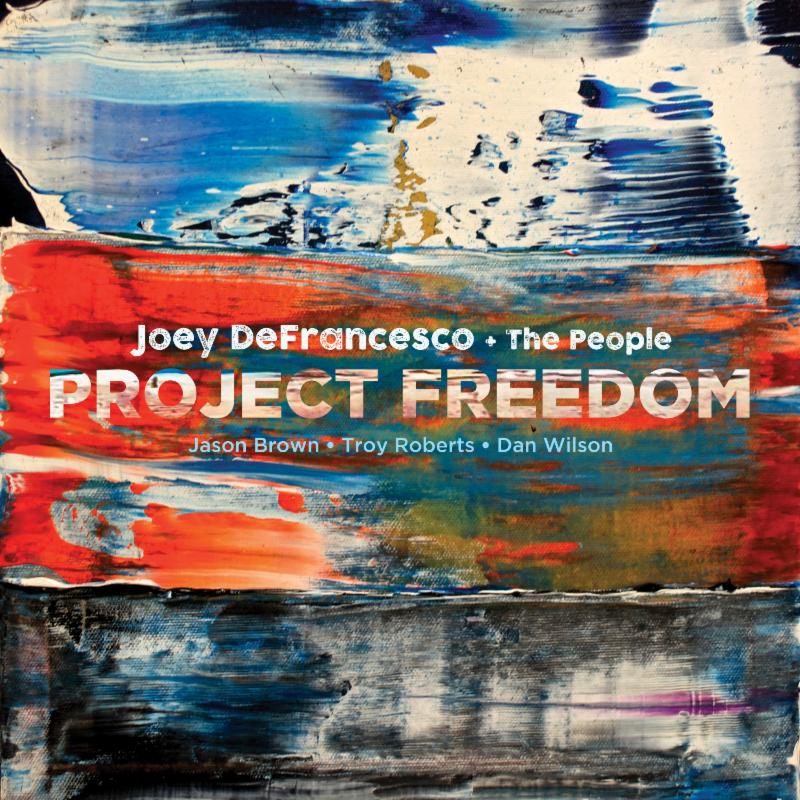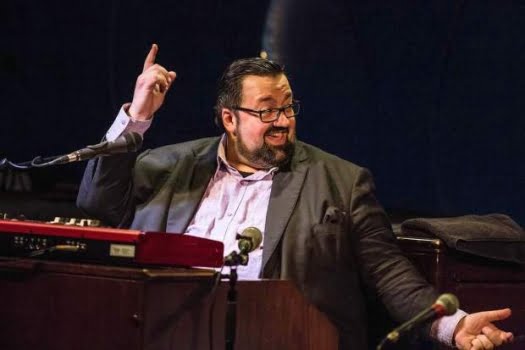Jazz interview with jazz virtuoso jazz organist, one of the Grammy award nominee Joey DeFrancesco. An interview by email in writing.
JazzBluesNews.Space: – First let’s start with where you grew up, and what got you interested in music?
Joey DeFrancesco: – I grew up in the Philadelphia area and I got started in music because I grew up surrounded by it.
JBN.S: – What got you interested in picking up the organ?
JD: – My father is also musician and an organ player so he had all the great records in the house not only organists but all great jazz artists. Listening to that as a kid made me want to play.
JBN.S: – What teacher or teachers helped you progress to the level of playing you have today? What made you choose the organ?
JD: – I am primarily self-taught. My father guided me in the right direction about the technique and settings and different things on the organ but most of my learning came from listening to records of the greats and there were some teachers that were influential later on such as Mr. Lovette Hines at the Settlement Music School and Gerald Price, the great pianist from the Philadelphia area.
JBN.S: – How did your sound evolve over time? What did you do to find and develop your sound?
JD: – The organ has many sounds because you have the ability to change the settings with the drawbars. The basic organ settings were established by the generation before me. I have my feel, my own horminic conception which continues to evolve, as a musician, that doesn’t stop. Of course your influences never leave you, that’s your starting point, your sound develops from there into your own thing.
JBN.S: – What practice routine or exercise have you developed to maintain and improve your current musical ability especially pertaining to rhythm?
JD: – I don’t have a specific practice routine but what I do call it is playing. It’s the same as going to play a gig except when you’re at home by yourself you get on the instrument and play. It could just be a blues that you play for a long period of time, trying different things out rhythmically, harmonically or as a song you just heard when you’re driving in a car on the radio. Practice to me is anytime you’re touching your instrument and I do it as much as I can and that’s the routine to me, just playing it where you would at any given time. I’ve never been interested in running scales and things like that, not that there’s anything wrong with that, but for me, I just like to play.
JBN.S: – Which harmonies and harmonic patterns do you prefer now?
JD: – The word patterns doesn’t register for me. I mean there are some people that work from patterns I guess there’s a way that I do too, I can’t really call it that. Harmonically I continue to grow. I’m always listening, becoming more free with the harmony. Once you get to the point where you realise that the notes all can be in harmony with each other, you’re limitless.

JBN.S: – What do you love most about your new album: «Joey DeFrancesco & the People Project Freedom», how it was formed and what you are working on today. This year your fans like we can wait for a new album?
JD: – «Project Freedom» is a musical message of love, peace and unification. The way the band plays on it, the way these melodies came out, the arrangements, everything just gelled. There are definitely future projects in mind, you’re gonna have to wait on those.
JBN.S: – You were presented at the Grammy Awards: Best Jazz Instrumental Album, how do you assess your potential?
JD: – It is a huge honor to be nominated for Grammy, this is my fourth nomination, I have never actually taken a Grammy home. Understanding the voting process and everything involved and what it takes to reach the nomination it‘s not taken lightly, I appreciate the recognition from my peers.
JBN.S: – Many aspiring musicians are always looking for advice when navigating thru the music business. Is there any piece of advice you can offer to aspiring students or even your peers that you believe will help them succeed and stay positive in this business?
JD: – As far as the music business goes, advice that I could give, it would be to surround yourself with the right people, make sure you know everything about who you are involved with that is going to be taking care of your business, that is what is important. I have been around for many years, in the past there were decisions made, business wise, I probably should have looked at a little closer.
JBN.S: – Аnd furthermore, can jazz be a business today or someday?
JD: – Music always comes first. Of course there is business in jazz, like all music, there is the business side of things. The festivals, the record companies, the clubs, touring, all those things have to be dealt with, that is the business side. But for me as an artist, as a musician, the music comes first and that is why you have to have good management, booking agents, people who take care of those things. As I said before, surround yourself with the right people.
JBN.S: – How can we get young people interested in jazz when most of the standard tunes are half a century old?
JD: – While there are a lot of young people interested in jazz regardless of how old some of the standards are and it has to do with exposing young people at a young age or at any age I believe when people hear things it gives them the opportunity to say whether they like it or not. And a lot of these songs that we call standards that are a minimum of 50 years are great songs that could be done in many different ways and you find a lot of artists now, younger artists or artists of all ages that are taking these songs and rearranging them re-harmonizing them for the future and there is also original music and all the other genres we listen to, I mean we listen to everything and young people get influenced by that, that’s what brings the music into the future and I definitely think there’s a huge future for younger people and more of them listening to jazz and it doesn’t have to do with just standards it’s just all music, there’s plenty of new jazz too so I think we’re all good.
JBN.S: – John Coltrane said that music was his spirit. How do you understand the spirit and the meaning of life?
JD: – Music is definitely a big part of my spirit, I think everybody’s spirit. Music is huge in life. And as far as the meaning of life goes, well, it is very similar to music, happiness in life is being in harmony with the Universe and one another and that is the same thing that we want to do with the music, the notes and the rhythms, everything in harmony with each other.
JBN.S: – What are your expectations of the future? What brings you fear or anxiety?
JD: – I do my best to put fears and anxieties aside at this point in my life. All I can do is what is right and I have faith that others will is well.
JBN.S: – What’s the next musical frontier for you?
JD: – In my opinion, all music is related: jazz, blues, folk, country, those are all labels. It is all music and they all do the same thing, you want to groove you want to feel good when you play it and you want to make people feel good when they hear it. Of course, there are different types of music even within one genre of its own, different ways and different styles to approach it, but in the end, there are similarities in all of them. If you listen you will hear that.
JBN.S: – Who do you find yourself listening to these days?
JD: – As far as what I listen to these days, wow, it is hard to say, because I listen to absolutely everything all styles all artists. Duke Ellington said it best “there are two kinds of music: good and bad”, or the other thing he used to say, “there’s good music and the other kind”. I have several vintage Hammond organs that are in tiptop shape, everything has been rebuilt in them, I have one that stays on the east coast and on the west coast I have a few as well. When I’m not using a vintage Hammond I use a Viscount Legend Organ.
Happy New year 2018 !!!
Interview by Simon Sargsyan







More Stories
Interview with Janis Siegel of The Manhattan Transfer: Jazz, being a more refined, interpreted form of music
CD review: George Benson – Dreams Do Come True: When George Benson Meets Robert Farnon – 2024: Video, CD cover
The band was tight as ever. The Warren Haynes Band cuts loose: Video, Photos